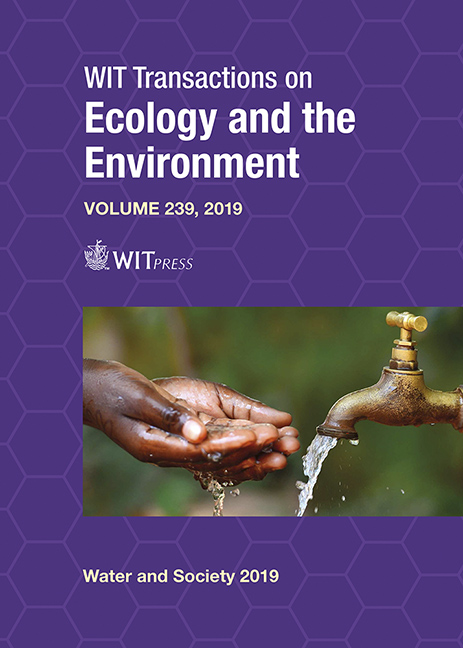SUSTAINABILITY OF WATER INVESTMENTS IN WEST AFRICA
Price
Free (open access)
Transaction
Volume
239
Pages
12
Page Range
211 - 222
Published
2019
Paper DOI
10.2495/WS190191
Copyright
WIT Press
Author(s)
LAKHDAR BOUKERROU, FAISSAL R. OUEDRAOGO, JOHN STEVE KABORE
Abstract
The objective of this case study was to assess the sustainability of the water investments made by the United States Agency for International Development through the West Africa Water, Sanitation and Hygiene Program (USAID WA-WASH) between 2011 and 2015 in Burkina Faso, Ghana, and Niger. During this period, the Program promoted low-cost water technologies with 376 drinking water points installed or rehabilitated; 8,192 household latrines constructed; 5,855 agricultural producers trained on short-term agricultural sector productivity or food security; 5,657 stakeholders increased their capacity to adapt to the impacts of climate change; 7,198 people trained on mainstreaming gender into their development activities. A tool was developed and used to assess the financial, institutional, environmental, technical, and social aspects of the sustainability of the Program investment included in WASH services. The results presented herein focus on the sustainability of the water investments in these three countries. The approach consisted of identifying the number of communities to be monitored; the number of water infrastructures within the community; meeting with local authorities; organizing focus group discussions; visiting all water points installed by the Program in each community; and collecting data on the functionality of the water points. The monitoring and evaluation team conducted four field visits between January 2016 and December 2017 to 72 communities in Burkina Faso, Ghana, and Niger. A different weight was given to each of the five sustainability areas. Data gathered during each of the visits was statistically analysed. The results showed that the water supply sustainability score was very good in Ghana (81%) but somewhat lower in Niger (63% – management committees not functional and no payment of user fees), and in Burkina Faso (55% – relocation of mechanics and a lack of maintenance). In most cases, the beneficiaries continue to use the information and skills acquired from the training, focus group discussions, and technical assistance provided by the USAID WA-WASH Program and the majority of the water points continue to be functional.
Keywords
West Africa, sustainability, water supply, investment, USAID, Florida International University.





